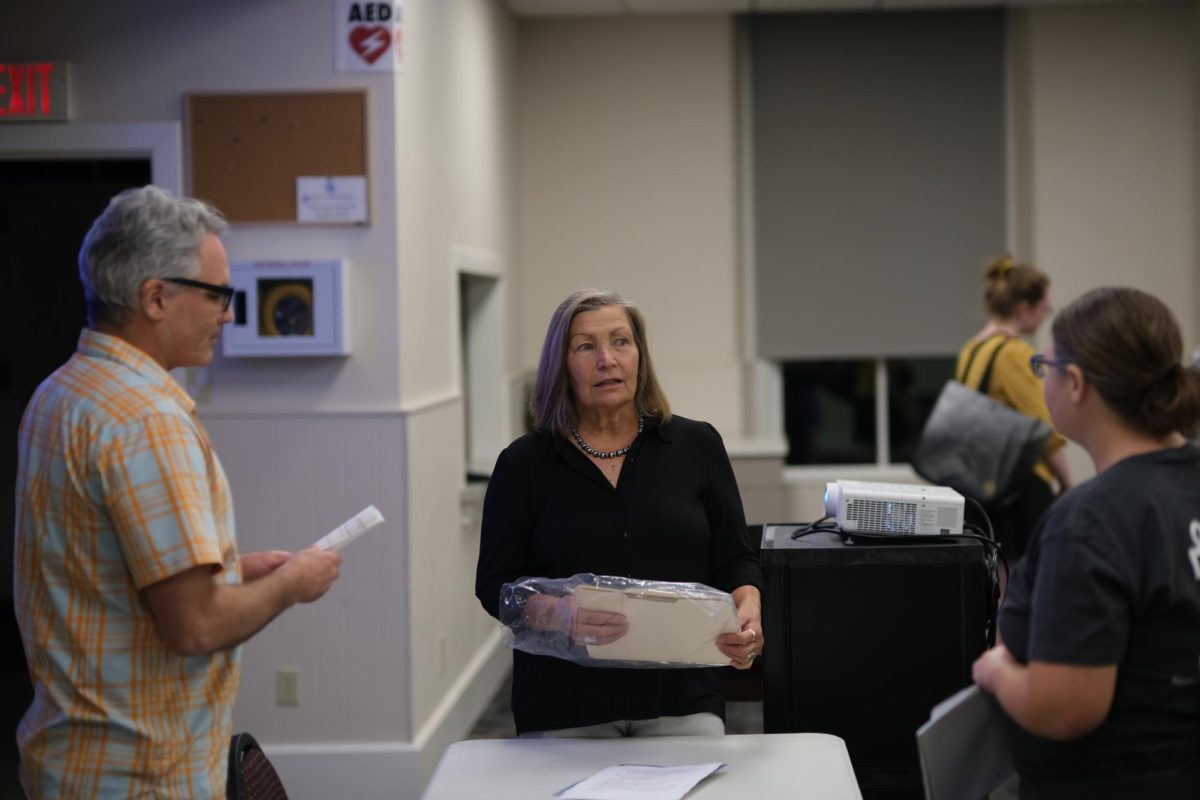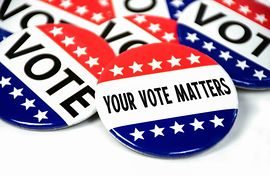Oxford residents who haven’t voted since the general election last year should be prepared for changes including a shortened request period for absentee ballots, reduced curbside voting and more restrictive ID requirements.
On Nov. 7, local voters will be able to vote on a state constitutional amendment protecting abortion, a measure to legalize recreational cannabis, a local electrical aggregation measure, and races for Oxford City Council and Talawanda Board of Education.
The changes to voting rules were driven by House Bill 458, signed into law by Gov. Mike DeWine, which was intended to limit voter fraud. According to Elizabeth Wardle, co-president for voter service of the League of Women Voters of Oxford, provisions include:
- Shortening the request period for absentee ballots by three days, moving it from noon the previous Saturday to 5 p.m. Tuesday, Oct. 31.
- Limiting curbside voting to voters with physical disabilities or who are unable to enter polling locations.
- No longer mailing absentee ballot request forms to all voters: voters can print them out or specifically request one from the Butler County Board of Elections.
- Restricting the kind of ID that can be used to vote to a valid Ohio driver’s license or provisional driver’s license; a BMV-provided ID card; a U.S. Military, Department of Veterans Affairs, National Guard card, or a valid passport. Before the bill, voters could not use a passport as a valid form of identification at the polls.
- Allowing absentee voters to use the last four digits of their social security number for ID.
- Shortening of the provisional ballot corrections window from ten days to four. Wardle said this change resulted in many times more provisional ballots being rejected when it was first implemented in the Aug. 8 special election.
- Shortening the counting of absentee ballots to four days after election day, as opposed to the previous ten-day window.
Wardle said the changes make voting more difficult for students, people who don’t drive, and people with disabilities.
Because voting in-person in Ohio now requires a valid Ohio driver’s license, out-of-state students will have to decide whether to get an Ohio driver’s license, cast an absentee ballot using their social security number, or continue to vote in their home state — many of which don’t have absentee voting available, said Wardle.
“If they are an out-of-state student and they change to an Ohio driver’s license, there may be some impact on their financial aid,” Wardle said.
While local elections are relatively low-profile, City Manager Jessica Greene said these elections can be just as important as national elections, if not more so.
“I don’t think a lot of people realize how much their voice matters at the local level, and how much their voice and their vote can impact local decisions,” Greene said. “That’s what I would hope our residents know.”
Oxford, with its large student population, will be impacted more by the voting changes than “communities who have more stable resident bases,” Greene said.
Kathie Brinkman, LWV communication director, said many of the voting changes can restrict voter participation. The August special election had a 35.7% turnout and rejected 124 provisional ballots, while the 2022 general election had a 50% turnout and rejected nine provisional ballots, according to Brinkman.
“This whole battle cry of voter fraud is causing some knee-jerk reactions,” Brinkman said. “[It’s] causing legislators to make changes where there’s so little voter fraud that you have to think, ‘why go to the bother of making it harder for people to vote?’”







